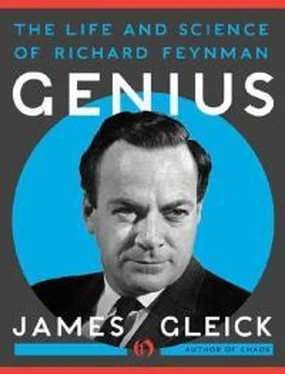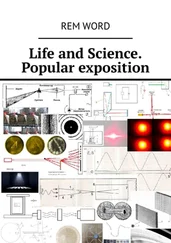Princeton: Princeton University Press.
Osgood, Charles G. 1951. Lights in Nassau Hall .
Princeton: Princeton University Press.
Pais, Abraham. 1982. “Subtle Is the Lord”: The Science and the Life of Albert Einstein . Oxford: Oxford University Press.
——. 1986. Inward Bound . Oxford: Oxford University Press.
——. 1991. Niels Bohr’s Times, in Physics, Philosophy, and Polity . Oxford: Oxford University Press.
Park, David. 1988. The How and the Why . Princeton: Princeton University Press.
Peierls,
Rudolf.
1985. Bird of Passage . Princeton: Princeton University Press.
Perutz, Max. 1989. Is Science Necessary? Oxford: Oxford University Press.
Pickering,
Andrew.
1984. Constructing Quarks: A
Sociological
History
of
Particle
Physics .
Edinburgh: Edinburgh University Press.
Polkinghorne, John C. 1980. Models of High Energy Processes . Cambridge: Cambridge University Press.
——. 1989. Rochester Roundabout: The Story of High Energy Physics . New York: W. H. Freeman.
——. 1990. “Chaos and Cosmos: A Theological Approach.” Talk at Nobel Symposium, St. Peter, Minn.
Pol ard, Ernest C. 1982. Radiation: One Story of the MIT
Radiation Laboratory . Durham, N.C.: Woodbum Press.
Popper, Karl. 1958. The Logic of Scientific Discovery .
London: Hutchinson.
Presidential Commission on the Space Shuttle Chal enger Accident.
1986. Report of the Presidential
Commission on the Space Shuttle Challenger Accident . Washington, D.C.
Princeton
University.
1946. The Future of Nuclear
Science .
Princeton
University
Bicentennial
Conferences: Series I, Conference I. Princeton: Princeton University Press.
Putnam, Hilary. 1965. “A Philosopher Looks at Quantum Mechanics.” In Colodny 1965, 75.
Quine, W. V. 1969. Ontological Relativity . New York: Columbia University Press.
——. 1987. Quiddities: An Intermittently Philosophical Dictionary . Cambridge, Mass.: Belknap Press.
Rabi, Isidor Isaac. 1970. Science: The Center of Culture .
New York: World.
Regis, Ed. 1987. Who Got Einstein’s Office?: Eccentricity and Genius at the Institute for Advanced Study .
Reading, Mass.: Addison Wesley.
——. 1990. Great Mambo Chicken and the Transhuman Condition . Reading, Mass.: Addison-Wesley.
Reichenbach, Hans. 1956. The Direction of Time .
Berkeley: University of California Press.
Reid, Hiram Alvin. 1895. History of Pasadena . Pasadena: Pasadena History Company.
Reid, R. W. 1969. Tongues of Conscience: Weapons Research and the Scientists’ Dilemma . New York: Walker and Company.
Reid, T. R. 1984. The Chip: How Two Americans Invented the Microchip and Launched a Revolution . New York: Simon and Schuster.
Reingold, Nathan, and Reingold, Ida H., eds. 1981.
Science in America: A Documentary History 1900–1919 . Chicago: University of Chicago Press.
Rhodes, Richard. 1987. The Making of the Atomic Bomb.
New York: Simon and Schuster.
Rigden, John S. 1987. Rabi: Scientist and Citizen . New York: Basic Books.
Riordan, Michael. 1987. The Hunting of the Quark . New York: Simon and Schuster.
Root-Bernstein,
Robert
Scott.
1989. Discovering:
Inventing and Solving Problems at the Frontiers of Scientific Knowledge . Cambridge, Mass.: Harvard University Press.
Sakharov, Andrei. 1990. Memoirs . Translated by Richard Lourie. New York: Knopf.
Salam, Abdus, and Strathdee, J. 1972. “The Path-Integral Quantization of Gravity.” In Aspects of Quantum Theory . Edited by Abdus Salam and E. P. Wigner.
Cambridge: Cambridge University Press.
Sanchez, George I. 1961. Arithmetic in Maya .
Scheid, Ann. 1986. Pasadena: Crown of the Valley .
Northridge, Calif.: Windsor.
Schlossberg, David. 1988. Tuberculosis . Second edition.
New York: Springer-Verlag.
Schrödinger, Erwin. 1967. What Is Life? Cambridge: Cambridge University Press.
Schucking, Engelbert L. 1990. “Views from a Distant Past.”
In General Relativity and Gravitation 1989. Edited by Neil Ashby. Cambridge: Cambridge University Press.
Schwartz, Joseph. 1992. The Creative Moment: How Science Made Itself Alien to Modern Culture . New York: HarperCol ins.
Schweber, Silvan S. 1983. “A Short History of Shelter Island I.” In Jackiw et al. 1983, 301.
——. 1986 a . “Feynman and the Visualization of Space-Time Processes.” Reviews of Modern Physics ,
58:449.
——. 1986 b . “The Empiricist Temper Regnant: Theoretical Physics in the United States 1920–1950.”
Historical Studies in the Physical and Biological Sciences 17:1.
——. 1986 c . “Shelter Island, Pocono, and Oldstone: The Emergence of American Quantum Electrodynamics after World War I .” Osiris 2:265.
——. 1989. “The Young Slater and the Development of Quantum Chemistry.” Historical Studies in the Physical and Biological Sciences 20:339
——.
Forthcoming. QED: 1946–1950: An American Success Story. Manuscript.
Schwinger, Julian. 1934. “On the Interaction of Several Electrons.” Typescript. Courtesy of Schwinger.
——,
ed.
1958. Selected Papers on Quantum
Electrodynamics . New York: Dover.
——. 1973. “A Report on Quantum Electrodynamics.” In Mehra 1973, 413.
——. 1983. “Renormalization Theory of Quantum Electrodynamics: An Individual View.” In Brown and Hoddeson 1983.
——. 1989. “A Path to Quantum Electrodynamics.” Physics Today , February, 42.
Segrè, Emilio. 1970. Enrico Fermi: Physicist . Chicago: University of Chicago.
——. 1980. From X-Rays to Quarks: Modern Physicists and Their Discoveries . Berkeley, Calif.: W. H.
Freeman.
Sharpe, Wil iam. 1755. A Dissertation Upon Genius .
Reprint, with introduction by Wil iam Bruce Johnson.
Delmar, N.Y.: Scholars’ Facsimiles and Reprints, 1973.
Sheppard, R. Z. 1985. “The Wonderful Wizard of Quark.”
Time , 7 January, 91.
Shryock, Richard Harrison. 1947. The Development of Modern Medicine . New York: Knopf.
Shuttle
Criticality
Review
Hazard Analysis Audit
Committee. 1988. Post-Challenger Evaluation of Space
Shuttle
Risk
Assessment
and
Management .
Washington,
D.C.:
National
Academy of Sciences Press.
Silberman, Charles E. 1985. A Certain People: American Jews and Their Lives Today . New York: Summit.
Simonton, Dean Keith. 1984. Genius, Creativity, and Leadership: Historiometric Inquiries . Cambridge, Mass.: Harvard University Press.
——. 1989. Scientific Genius . Cambridge: Cambridge University Press.
Sitwel , Edith. 1943. Street Songs . London: Macmil an.
——. 1987. Façade . London: Duckworth.
Sklar, Lawrence. 1974. Space, Time, and Spacetime .
Читать дальше












